P3ICL RESEARCH PROJECT PROGRESS REPORT 2018
UNESCO (2005) argues for the need to recognise linguistic diversity in society as a means to promote cultural diversity, which is necessary for a full realisation of human rights and fundamental freedoms.
The Namibian Government in general and the Ministry of Education, Arts and Culture in particular, clearly positions itself to promote unity in diversity, to give all Namibians a sense of identity and pride in their own creative talents, and to improve the quality of life which has a primacy of place.
The impact of globalisation and information technologies could lead to the possible extinction of or impairment to cultural expressions. Consequent recommendation is needed for relevant actions that will ensure adequate protection and promotion of cultural expressions, identities and subsequently, human rights.
Namibia, despite its scant population, is home to a wide variety of cultures that speak diverse languages, from multiple language families: Indo-European, Bantu, and the several Khoe Khoe families.
Indigenous languages are included in the school syllabus at primary level. From secondary level, English is the medium of instruction. The emphasis on English to the detriment of other local languages has created a situation wherein the indigenous languages are fighting for their very existence. Although speakers of such minority languages have a deep attachment to their cultural identity and history embedded in their language, the language itself proves unsustainable for economic reasons.
P3ICL therefore attempts to bring about a revitalisation of indigenous languages for the preservation of culture through the recording of cultural practices in the local languages, both for preservation and promotion. This action will also lead to a greater understanding between the different cultural groups and promote unity in diversity.
1. A brand reflecting the main thrust of the project P3ICL was designed and letterheads, business cards, a roll-out banner and laminated posters were printed.
The Technical Advisory Committee was created, consisting of members from the Ministries of Arts, Culture and Education, the Museums Association, the Namibian Scientific Society, UNESCO, Namibia Media Holdings, and the Mother Languages Association.An inception meeting was held on 8 March, 2018 to inform the Technical Advisory Committee of the project and seek their advice with regard to the indigenous languages.The chairperson of the TAC was also selected by unanimous vote from the members present. Mrs Esther Moombula-Goagoses from the Ministry of Education, Arts and Culture graciously accepted the chairpersonship.
2. The Technical Advisory Committee was created, consisting of members from the Ministries of Arts, Culture and Education, the Museums Association, the Namibian Scientific Society, UNESCO, Namibia Media Holdings, and the Mother Languages Association.An inception meeting was held on 8 March, 2018 to inform the Technical Advisory Committee of the project and seek their advice with regard to the indigenous languages.The chairperson of the TAC was also selected by unanimous vote from the members present. Mrs Esther Moombula-Goagoses from the Ministry of Education, Arts and Culture graciously accepted the chairpersonship.
Prof. Krishnamurthy with some members of the P3ICL Technical Advisory Committee
Technical Advisory Committee chairperson, Mrs Esther Moombula-Goagoses (Source: namibiansun.com)
Mrs Esther Moombulah-Goagoses
External members (Chair)
Mrs Nehoa Kautondokwa - Museums Association of Namibia
Mr Dickson Kasote - UNESCO
Ms Genory Cloete - National Heritage Council
Ms Beverly Van Wyk - National Heritage Council
Mr Isador Kamati - Namibia Scientific Society
Mrs Nzila Mubusisi - National Museum of Namibia (Ministry of Education Arts and Culture)
Mrs Esther Moombolah Goagose s- NHPC (Ministry of Education Arts and Culture)
Internal members
Prof Sarala Krishnamurthy (Project leader)
Dr Haileleul Zeleke Woldemariam
Dr Nkosithando Mpofu
Mrs Jeanne Hunter
Mrs Lizelle Miller
Mrs Renate Husselman
Mr Lazarus Gawazah- Research Assistant
Prof. Woldemariam discussed the data collection process with students from NUST, UNAM and IUM
Ovambadja students who participated in the play.
Source: https://namibinsider.wordpress.com/)
The Olufuko play staged at NUST
Prof. Haileleul Woldemariam informing an audience about the project.
Prof. Sarala with our Himba student assistants.
The meeting with the Ovahimba and Ovadhimba leaders and elders.
The Ovadhimba women entertained us with song and dance.
Report on the Ovadhimba research in the the Nust Brief of March 2019
An example of an Oludhimba story that was transcribed and translated during the data collection process.
Co-designing of the output will start in 2019 after looking at what has been collected so far. A meeting had been planned for the co-designing part of the project wherein we will finalise how to go about co-designing the products that we have planned for as Work package 3.

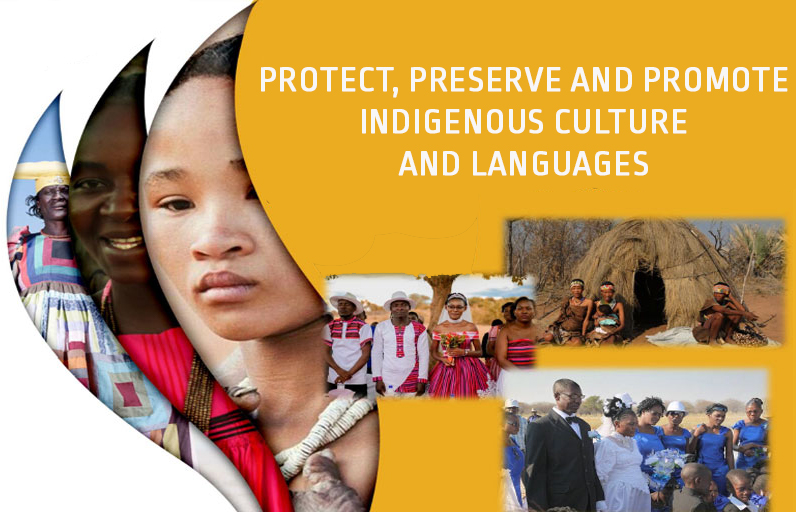
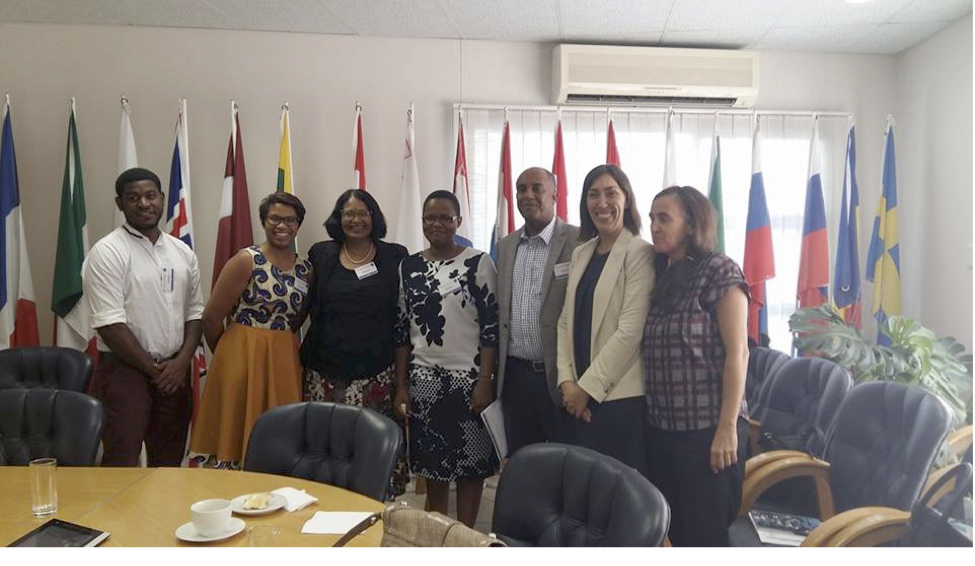
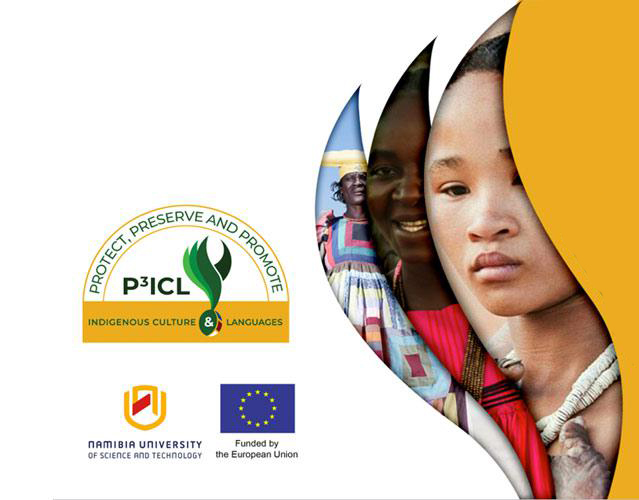
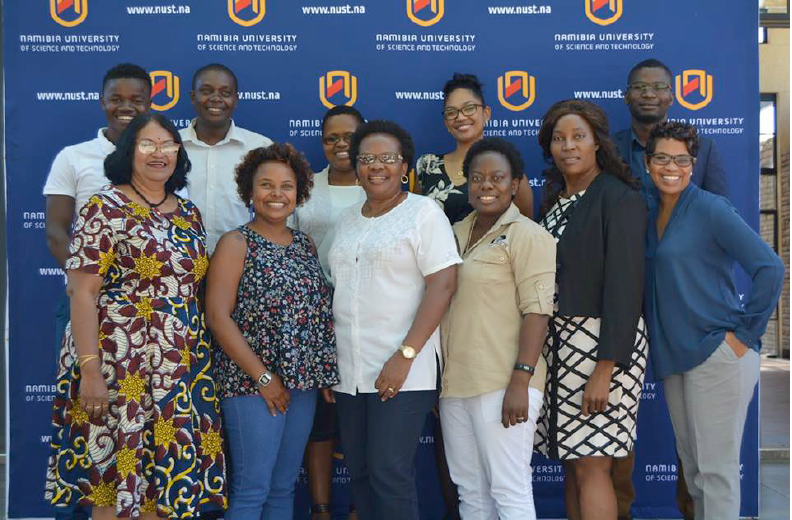
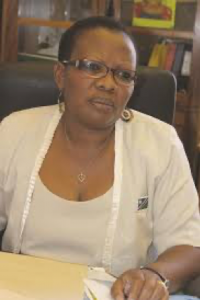
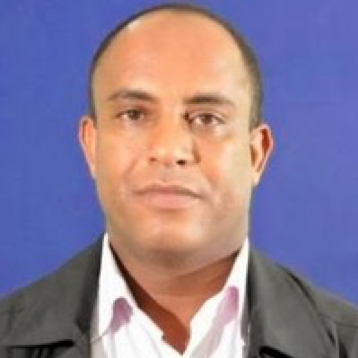

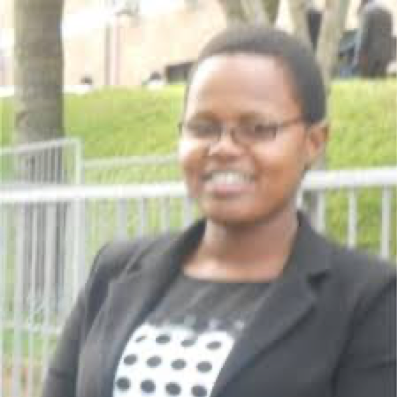


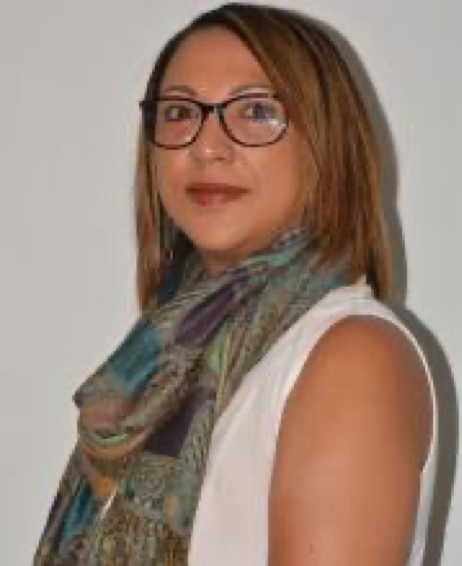
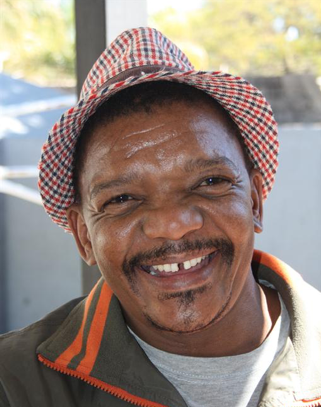

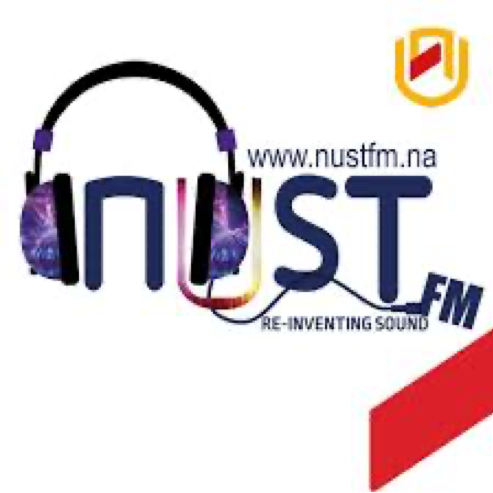
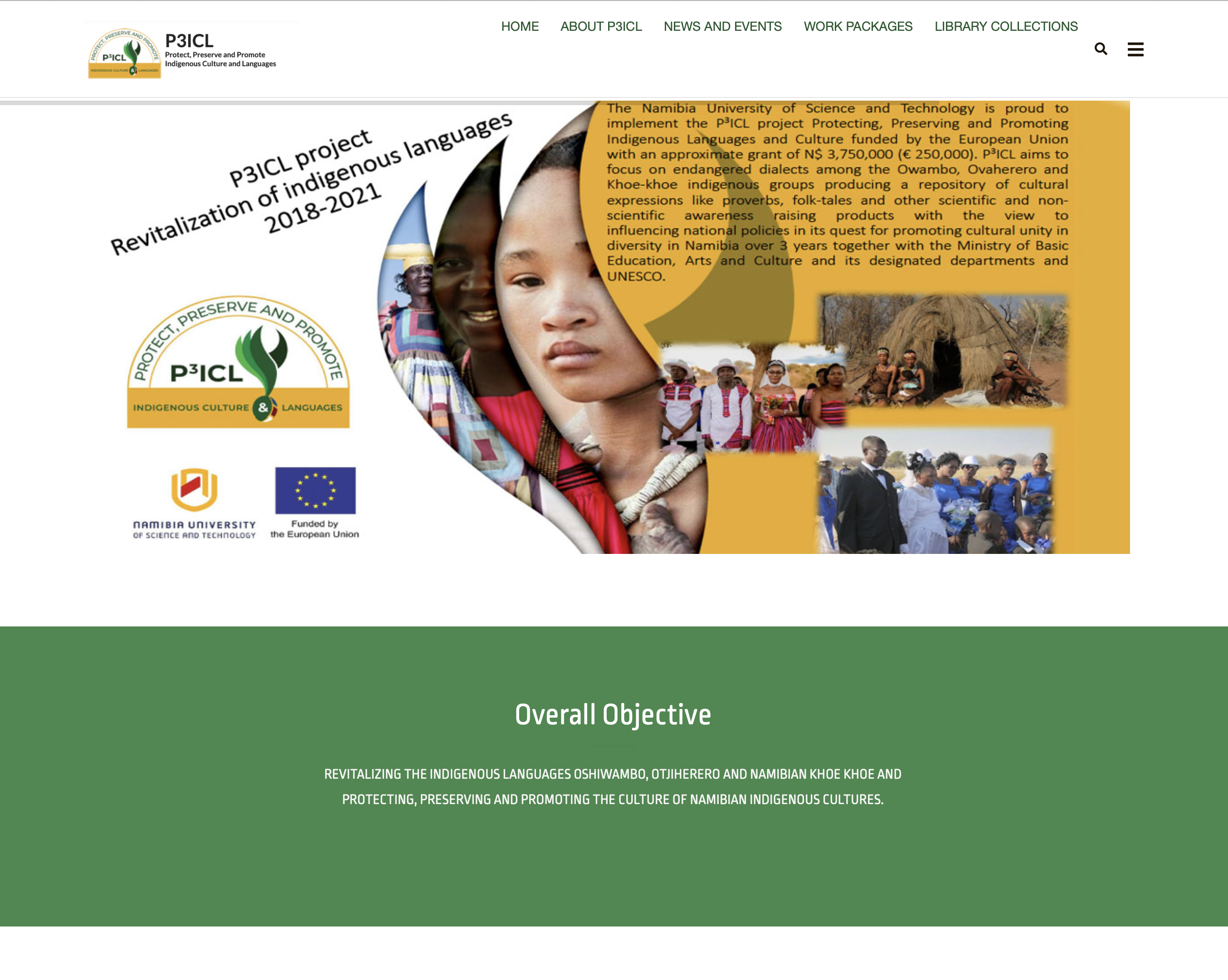
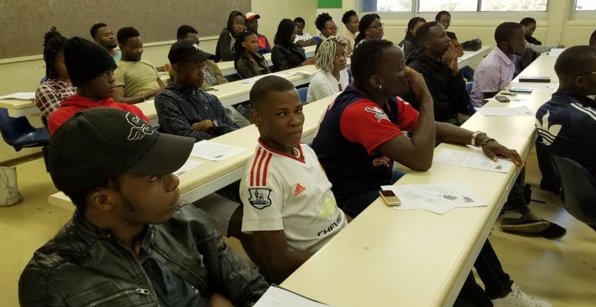
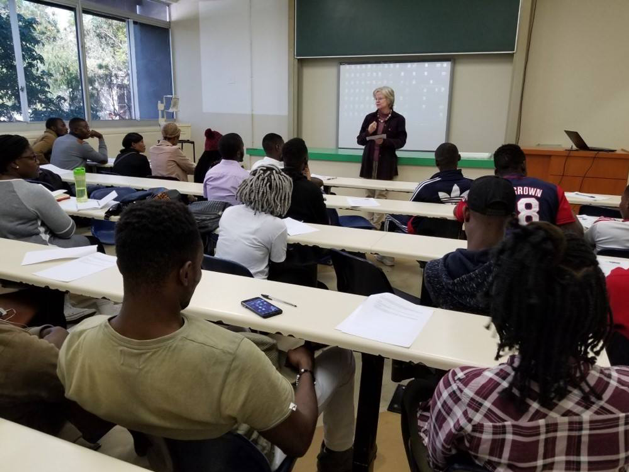
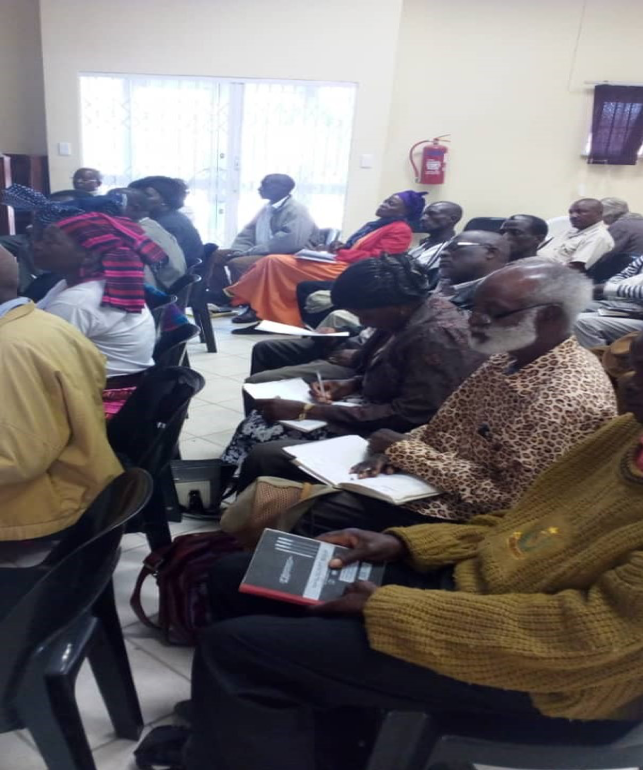
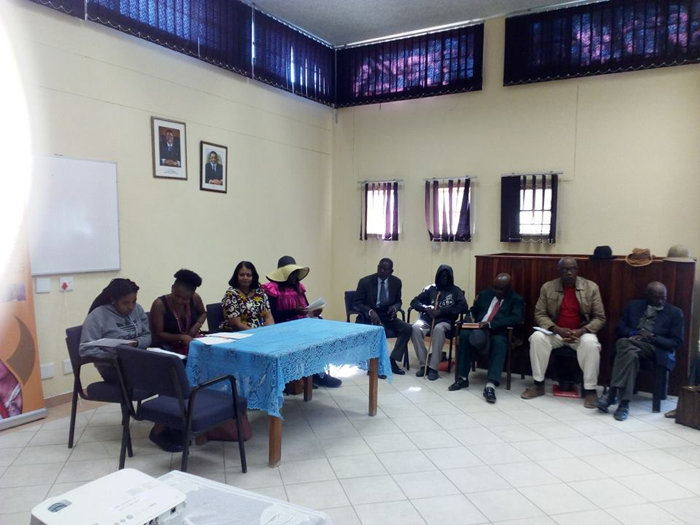
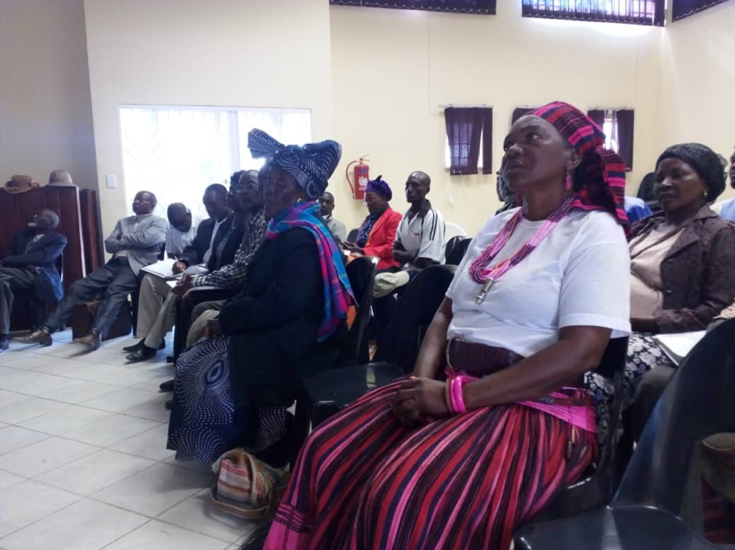
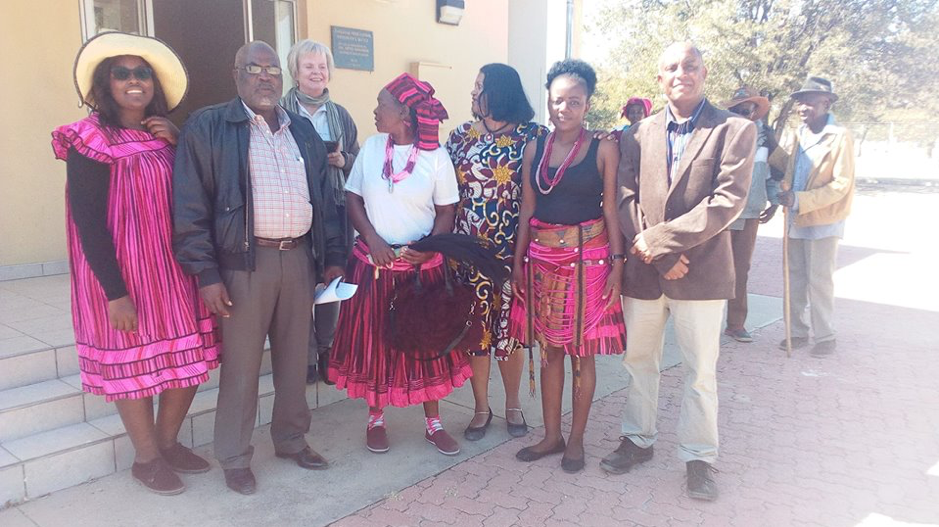
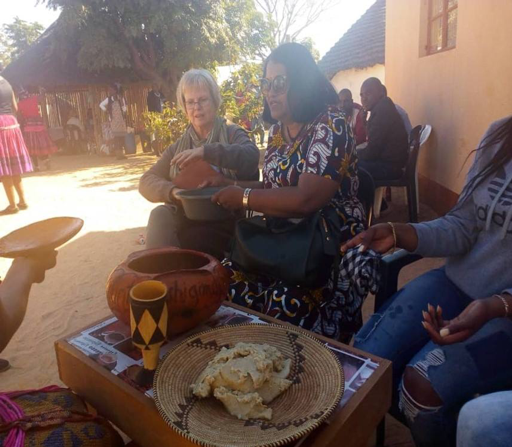

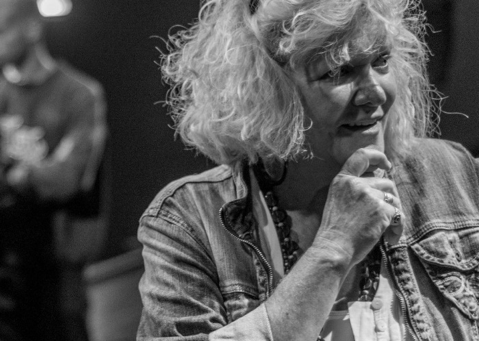
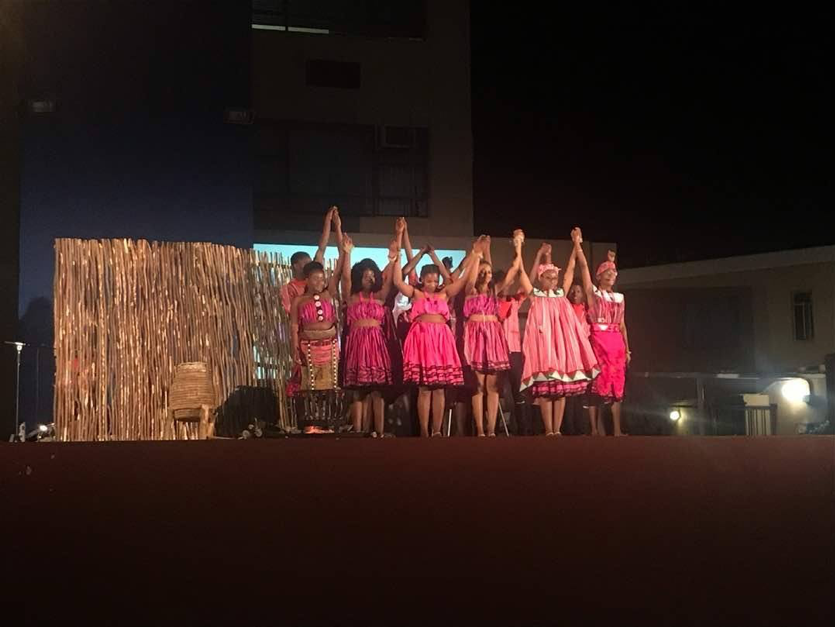
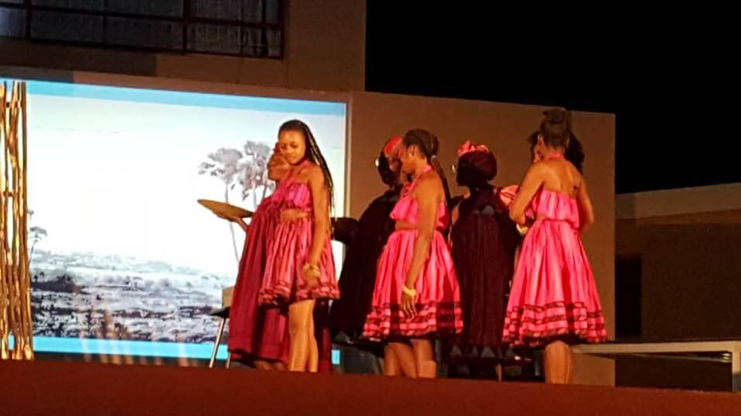
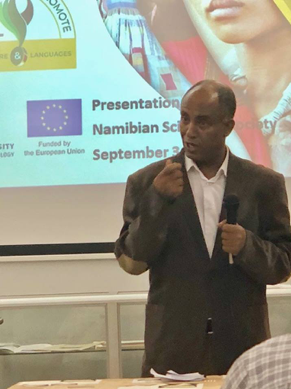
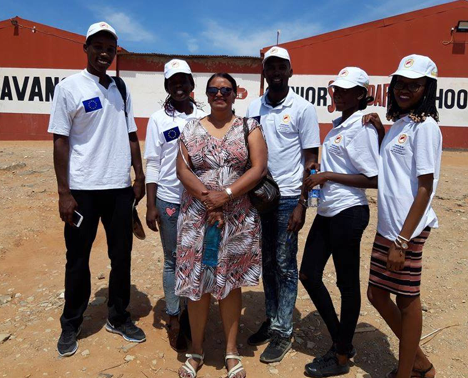
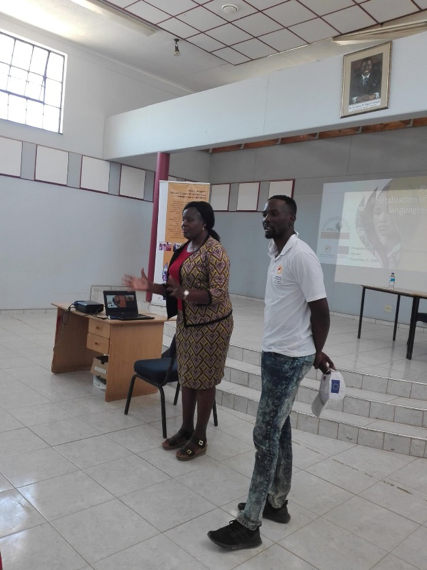
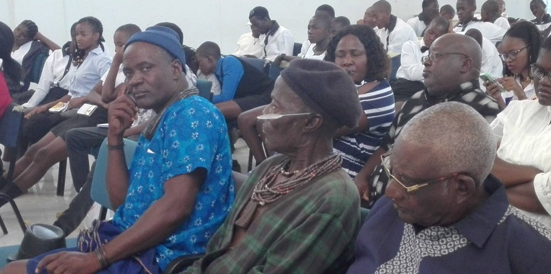
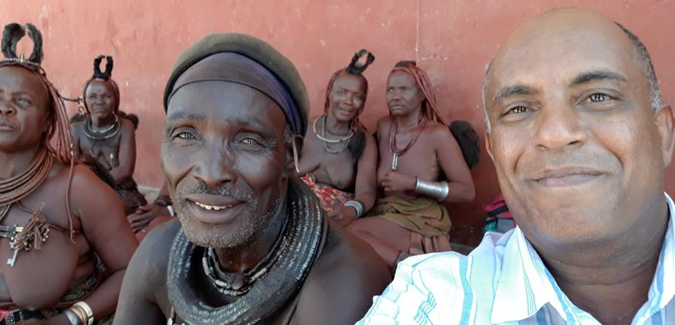
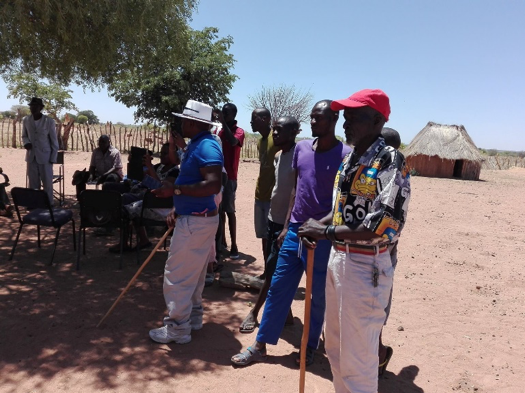
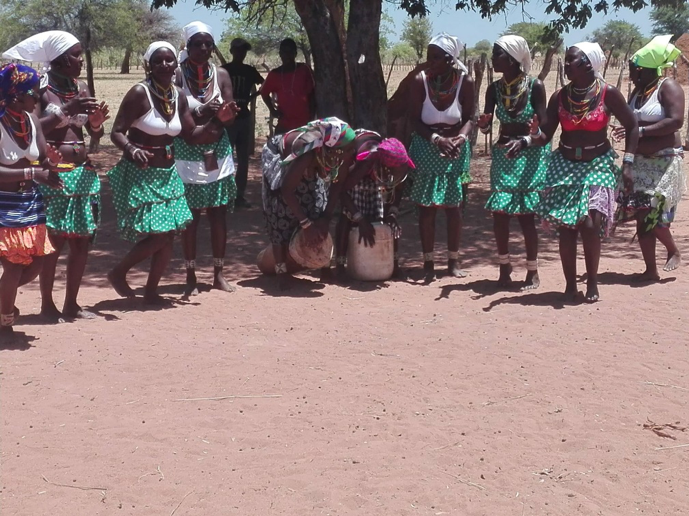
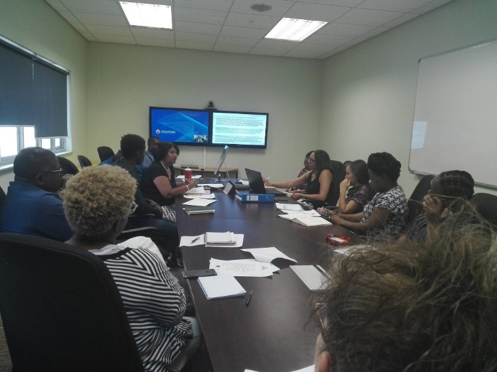
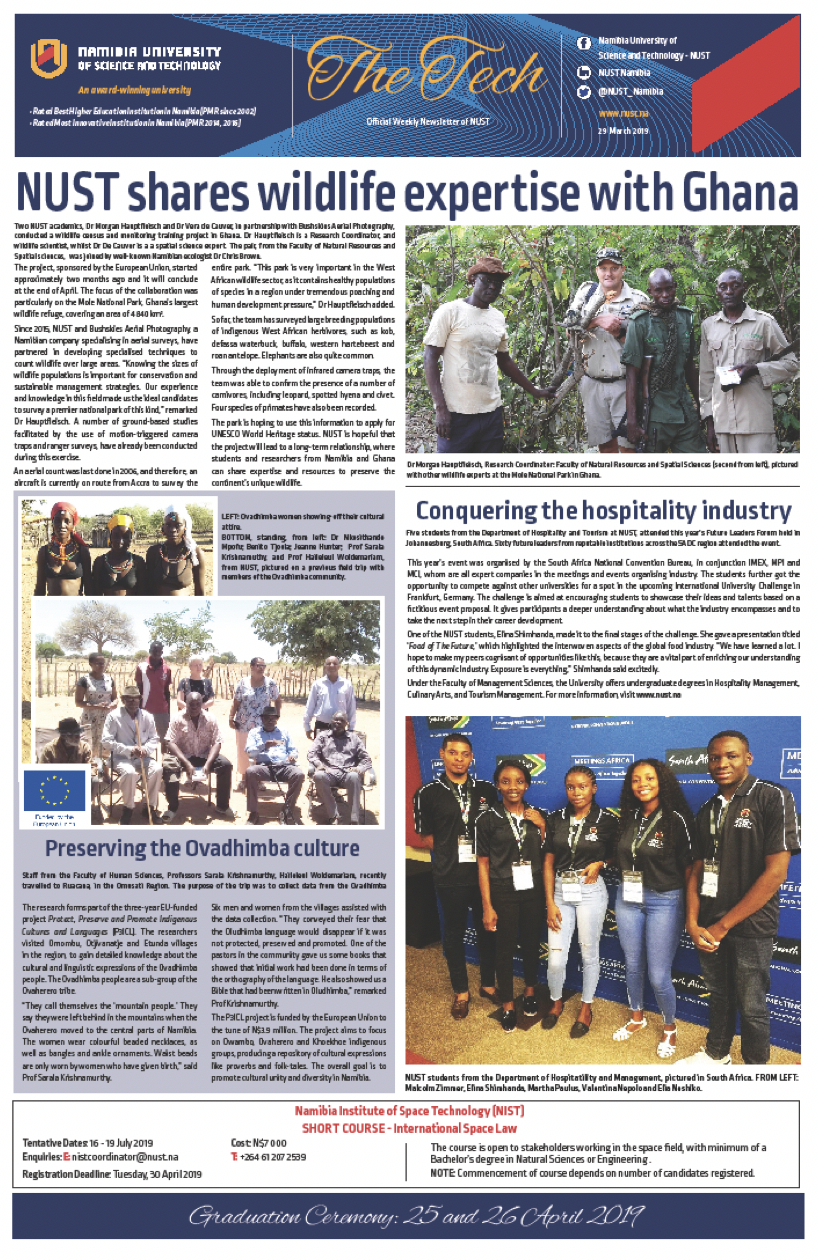
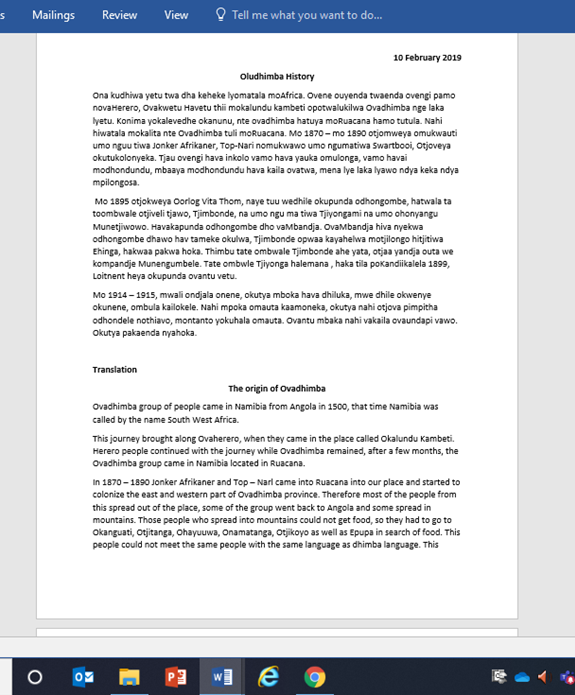
6. Social Media
A Facebook page and Twitter Account was set up to encourage student participation and garner interest in the project. See the page for information and photos at https://www.facebook.com/P3ICL/.